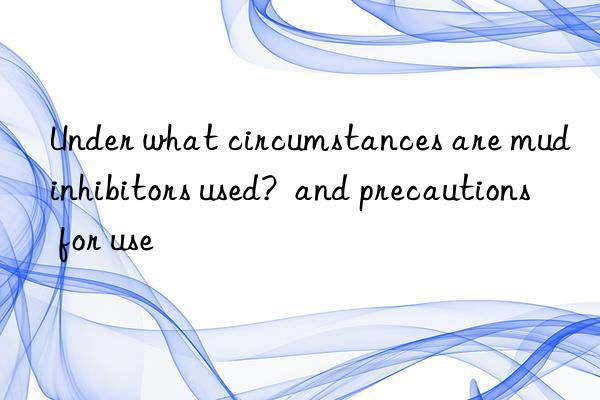
Under what circumstances should mud inhibitors be used? Tens of thousands of tests have confirmed that when the sand and gravel content is relatively large, a certain proportion needs to be added during construction. When should it be used? Installation Yulong New Materials Co., Ltd. The editor of the company will take you to take a look
1. When using inferior fly ash or concrete with the added amount of water-reducing agent, the slump cannot be increased;
2. As cement blending materials become more and more complex, when the amount of water-reducing agent is increased, the slump cannot be increased;
3. Use high-concentration (20%) water-reducing agent When used in concrete, the slump cannot be opened;
4. The concrete can be opened, but the slump is lost quickly. It is recommended to add "Qingdao Dingchang's mud inhibitor;"
p>5. When the adhesive material is complex and all kinds of water reducing agents cannot be used to adjust the ideal concrete state;
6. Concrete sand and stone contain a lot of mud and are adsorbed When the carboxylic acid molecules are large and collapse quickly;
7. The "accelerator" and "sacrificial agent" of the polycarboxylate water-reducing agent, when the carboxylic acid molecules are adsorbed by the inactive component materials and cannot play a dispersing role ;
8. As concrete floor materials and adhesives become more and more complex, a large number of ultrafine porous inorganic materials are used in commercial concrete. The porous materials absorb a large amount of polycarboxylic acid molecules, causing polycarboxylic acid to reduce water content. When the ability is poor and the slump-preserving effect is poor
Precautions for using mud inhibitor
Mud inhibitor is a new and efficient concrete additive, whether it is liquid or powder , the issues that need to be paid attention to when using are:
1. As there are many types of air-entraining agents currently used in various places, this product may produce floc or turbidity when combined with the air-entraining agent. At this time, it is not necessary Add more or less air-entraining agent. The functional group of this product has an appropriate air-entraining effect. If there is too much air-entraining during compounding, it can be eliminated by adding a defoaming agent.
2. The changes in raw materials are relatively small Sensitive. When using inactive glue in concrete, if the quality of sand, stone materials and admixtures such as fly ash, mineral powder and other raw materials changes significantly, a trial mix test of the raw materials should be carried out to adjust the dosage to achieve the desired effect.
3. When the concrete mud content is relatively high, it is particularly sensitive to the mud content of the aggregate. Excessive mud content will reduce the performance of the polycarboxylate water-reducing agent. Therefore, polycarboxylic acid is used When using water-reducing agents, the quality of the aggregates should be strictly controlled. When the mud content of the aggregates increases, the dosage of polycarboxylate water-reducing agents should be increased.
4. Plastic barrels should be used as packaging barrels. To ensure the stability of mud inhibitor performance. Since polycarboxylate water-reducing agent products are often acidic, long-term contact with iron products will cause a slow reaction, and even make the color darker and black, resulting in a decline in product performance.
The test results of fine aggregate mud content are evaluated using
The influence of different mud contents in sand on the properties of concrete was studied. The experimental results show that as the mud content in sand increases, The initial workability of concrete is improved, the loss over time becomes larger, the setting time is shortened and the strength is affected differently. At the same time, the construction performance of concrete can be effectively improved by adding mud inhibitors currently on the market, but as the amount increases, the strength of the concrete decreases
What is the range of mud content in coarse aggregates that is considered qualified
p>
According to GB/T14685-2011 "Pebbles and Gravel for Construction":
The mud content of Class I eggs and gravel (by mass) is ≤0.5%;
The mud content of Class II eggs and gravels (by mass) is ≤1.0%;
The mud content of Class III eggs and gravels (by mass) is ≤1.5%.
If the mud content exceeds this range, it is unqualified.
Mud content test of coarse aggregate
According to the nominal maximum particle size of the aggregate you want to make, determine the corresponding weight of the stone. . Pass through a 4.75mm sieve, weigh the stones below the 4.75mm sieve to record the quality, then wash with water, soak for 24 hours, and knead the mud into pieces with your hands. Then pass through a 2.36 sieve, dry, and weigh the residue. The calculation is to subtract the value below 4.75 from the value above 2.36 divided by 4.75. It’s the clay content. Nowadays, the mud content is generally not measured because the coarse aggregate is mainly stone powder. Stone powder does not have a great impact on the strength of concrete.
Mud inhibitor is a new type of concrete admixture independently developed and produced by Qingdao Dingchang New Materials Co., Ltd. It looks like a light yellow powder. This product is a small molecule adsorbent that can be preferentially adsorbed on the surface of clay particles, neutralize the charge of the clay, and reduce the adsorption of the polycarboxylate water-reducing agent by the clay. This product is non-toxic, non-flammable and has no corrosion effect on steel bars. It can be widely used in concrete pumping construction in buildings, roads, bridges, hydraulic engineering and underground projects.
</p

 微信扫一扫打赏
微信扫一扫打赏

